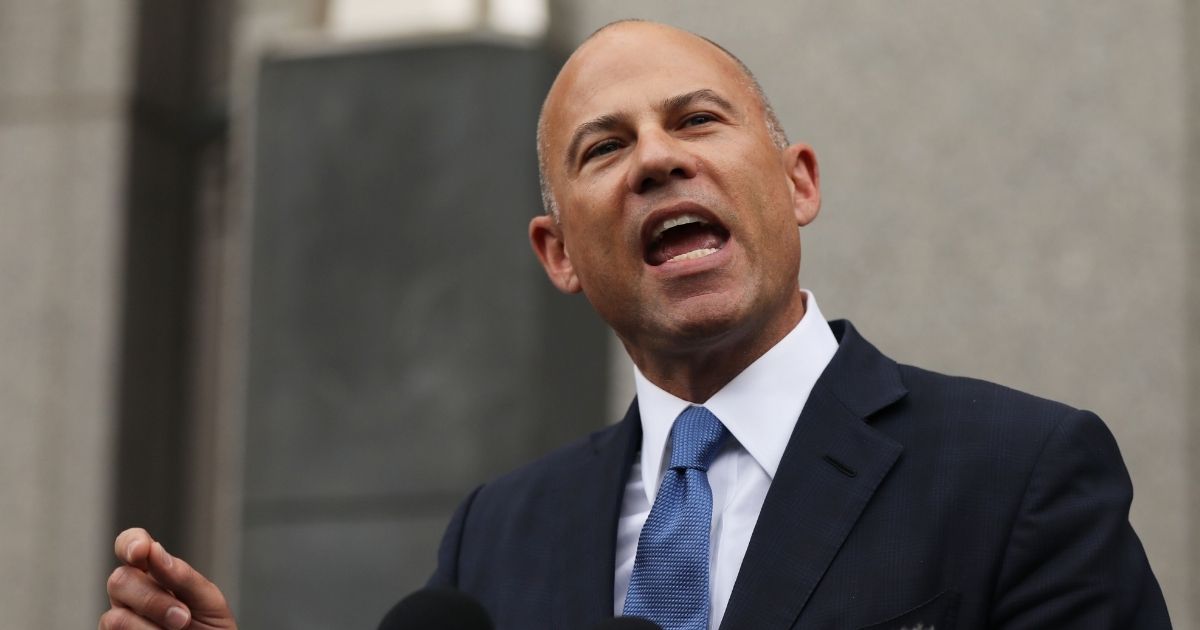August 16, 2021
-The Western Journal
There is something biblical about Michael Avenatti. Lionized in 2018 as a crusader for justice and against then-President Donald Trump, Avenatti rose to fame on the TV news show circuit and as CNN’s main crossing guard at the intersection of law and presidential politics.
Propelled by his TV personality, Avenatti reached his apex in 2018, announcing that he was seriously considering a 2020 presidential run.
Legal crusader, golden boy of his law school, race car driver, eloquent and impassioned defender of the everyman, Avenatti created for himself a vacuum of celebrity, politics and power. Then, like a tragic biblical character, he either fell from grace or turned himself into a pillar of salt, depending upon your perspective.
The first fissure was an internal one with his star client, Stephanie Clifford, more popularly known as Stormy Daniels. While the world wanted to view her as a unidimensional adult entertainer, we began to see her intelligence and talent for taking on obstacles, one of which became her own lawyer, who seemed to redirect funds intended for her.
When Avenatti imploded, it went fast. Bleeding cash from his legal practice, a coffee business and a fresh divorce, we learned that he launched a scheme to defraud Nike of over $20 million. If that was the end of his beginning, and being sentenced to 30 months in prison was his second act, where he finds himself today may finally be the beginning of his end.
After Avenatti was found guilty of crimes against the shoe giant named after the winged goddess of victory, July brought a new loss for the lawyer who is serving a term not as president but as an inmate. Now on trial for embezzling funds from his clients, he is once again in the spotlight for feeding off the world of celebrity — this time a YouTube sensation.
Judy Regnier is the former paralegal for Avenatti and a central figure to his new trial. Avenatti is accused of stealing $4 million from YouTube beauty blogger Michelle Phan. In the current Avenatti trial, he is being charged with stealing from multiple clients with the help of his former paralegal.
At trial, it became clear that Avenatti’s life had become stealing from one hand (here, his clients) to pay other hands (including multiple creditors going after his previous law firm, Eagan Avenatti, which went into bankruptcy).
At one point in the trial, an associate of Ms. Phan read an email he sent Avenatti showing the scope of the fraud but also how much trust Avenatti’s clients placed in him and how much access he had.
The email said there was “$8 million of Michelle’s money in the ether somewhere. We have been given the runaround for over six weeks.”
Of course, there are no funds today to pay back any of the people from whom Avenatti and his employees stole money. While the bankruptcy trustee is trying their best to recover money that Avenatti spent on personal things and on his abysmal coffee venture, there is a long line of creditors who will never see a cent.
What are the lessons here?
One lesson is about trust.
Robert Maider, a New Jersey attorney, points out that cases such as that of Mr. Avenatti go far beyond one lawyer and one client:
“The trust between lawyers and our clients is what the entire relationship is built upon. Where that trust is violated, it harms not only that lawyer and client but the entire profession. When lawyers are dishonest with their clients, it erodes the foundation of the entire attorney-client relationship.”
So many great lawyers throughout the nation advocate for their clients every day, thinking only of their interests and working hard for the best resolution of any issue the client presents to them. But we don’t read about these stories every day; we read about the comparatively few Avenattis in the practice of law. These are the stories that resonate with us and stick in our memories.
There is also a larger and critically important lesson here about how we seem to be obsessed with creating false idols. As the Bible itself reminds us in 1 Corinthians 10:14, “Therefore, my beloved, flee from idolatry.”
Yet we allow media, both social and broadcast, to take us from zero to infinity in seconds. We not only create false idols; we propel them into the stratosphere of stardom in record time. We want them to fill something we lack in our collective lives, to somehow infuse quick and easy hope into our shared existence.
And when we do, more often than not, we find some sort of cautionary tale, though rarely as public or visceral as the ongoing Avenatti saga.
No matter how Michael Avenatti’s current trial ends, the fact that he keeps re-emerging in news cycles and is constantly portrayed in a light far too favorable for who he actually is should be a reminder that we need to slow down and think more critically when people are so quickly propelled into this volatile media space of law and politics.
Maybe if we take more time and ask better questions, we will get better results.




